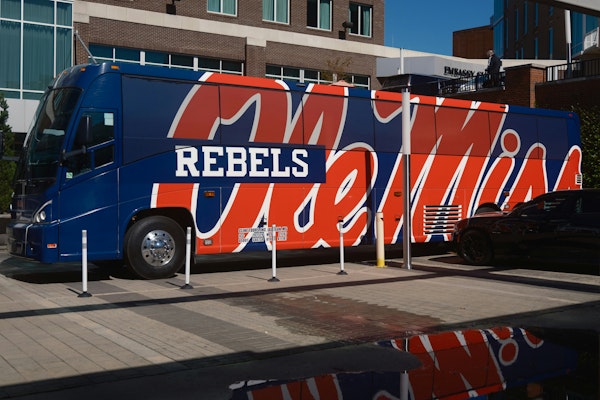
Why Bloomberg Says Premium Caps Could Worsen the Homeowners Insurance Crisis
A Bloomberg editorial urges policymakers to focus on resilience, legal reform, and mitigation rather than capping rates or penalizing insurers as premiums climb nationwide.
February 6
Catastrophe
Insurance Industry
Legislation & Regulation
Litigation
Property
California
Florida
Illinois

Washington Landlord Sues State Farm Over Seven-Adjuster Water Damage Claim
A Spokane Valley landlord alleges repeated adjuster turnover and underpayment left a rental property uninhabitable for months and triggered lien filings and litigation.
February 6
Insurance Industry
Legislation & Regulation
Litigation
Property
Washington

Former Ole Miss Football Player Convicted in $194M Fraud Scheme
Federal prosecutors say the ex-football standout used telemedicine fronts and DME companies to bill Medicare and CHAMPVA for unnecessary orthotic braces, targeting vulnerable seniors.
February 4
Fraud
Insurance Industry
Legislation & Regulation
Risk Management
Florida
Mississippi

California Climate Disclosure Laws Face First Amendment Test in Federal Appeal
Business groups argue California’s climate reporting mandates compel political speech and impose nationwide compliance burdens as the Ninth Circuit weighs constitutional limits.
February 2
Catastrophe
Insurance Industry
Legislation & Regulation
Litigation
Property
California

Power Outages Cause Billions in Hidden Losses That Insurance Models Miss
New research shows business interruption and system-wide losses from blackouts can dwarf insured property damage, raising questions for catastrophe modeling and resilience investment.
January 27
Catastrophe
Insurance Industry
Legislation & Regulation
Property
Risk Management

Cyberattack Halts Property Searches, Threatening Home Sales in London Boroughs
A prolonged cyber incident at two major London councils has stalled home sales, highlighting cyber risk and operational dependency in property transactions.
January 27
Insurance Industry
Legislation & Regulation
Property
Risk Management
Technology

Florida Moves to Tighten Engineering Standards for Roof and Property Damage Claims
New draft rules would require site inspections, code citations, and weather data, raising the bar for engineering opinions used in Florida insurance disputes.
January 26
Insurance Industry
Legislation & Regulation
Litigation
Property
Risk Management
Florida

Ice Storm Strains US Power Grids as Blackout Risks Rise From Texas to New England
Grid operators warn of record winter demand and prolonged outages as ice damage, extreme cold, and emergency measures collide across multiple regions.
January 26
Auto
Catastrophe
Insurance Industry
Legislation & Regulation
Property
Connecticut
District Of Columbia
Illinois
Louisiana
Maine

Cyber Remains Top Global Risk for 2026 as AI and Geopolitics Drive Loss Exposure
Allianz’s 2026 Risk Barometer shows cyber incidents, AI liability, and business interruption reshaping claims exposure across industries worldwide.
January 23
Catastrophe
Insurance Industry
Legislation & Regulation
Liability
Property

Climate Nonprofits Step In as Federal Weather and Disaster Databases Are Cut
As federal agencies scale back climate and weather programs, nonprofit groups are stepping in to preserve datasets critical to catastrophe modeling, insurance claims analysis, and risk mitigation.
January 23
Catastrophe
Insurance Industry
Legislation & Regulation
Property
Risk Management
Colorado
Florida

WWF Warns Nature Loss Is Widening Insurance Protection Gaps in Advanced Economies
A new WWF white paper says degraded ecosystems are amplifying climate losses, pushing premiums higher, limiting coverage, and leaving more risks uninsured across advanced economies.
January 20
Catastrophe
Insurance Industry
Legislation & Regulation
Property
Risk Management

Tort Reform Spurs Auto Rate Decreases Across Louisiana Insurance Market
State regulators report more than 20 auto insurance rate decreases since mid-2025, citing reduced litigation and lessons from Florida’s reform-driven market recovery.
January 19
Auto
Insurance Industry
Legislation & Regulation
Litigation
Risk Management
Florida
Georgia
Louisiana

California Lawmakers Move to Regulate Aerial Imagery Used by Insurers
A proposal would require advance notice to homeowners and bar insurers from relying on aerial images older than 180 days when making coverage decisions.
January 12
Insurance Industry
Legislation & Regulation
Property
Risk Management
Technology
California

Liability Claims Surge as Non-Economic Inflation Drives Nuclear Verdicts, Swiss Re Warns
Litigation funding, shifting jury attitudes, and expanding mass torts are driving liability claim severity and reserve pressure across U.S. and global markets.
January 12
Insurance Industry
Legislation & Regulation
Liability
Litigation
Risk Management

Texas Breaks Tornado Records in 2025 as Claims and Premium Pressures Mount
Texas recorded more tornadoes than any other state in 2025, intensifying claims activity, pushing premiums higher, and renewing scrutiny on wind and hail deductibles across the property insurance market.
January 12
Catastrophe
Insurance Industry
Legislation & Regulation
Property
Risk Management
Arkansas
Missouri
North Dakota
Texas





